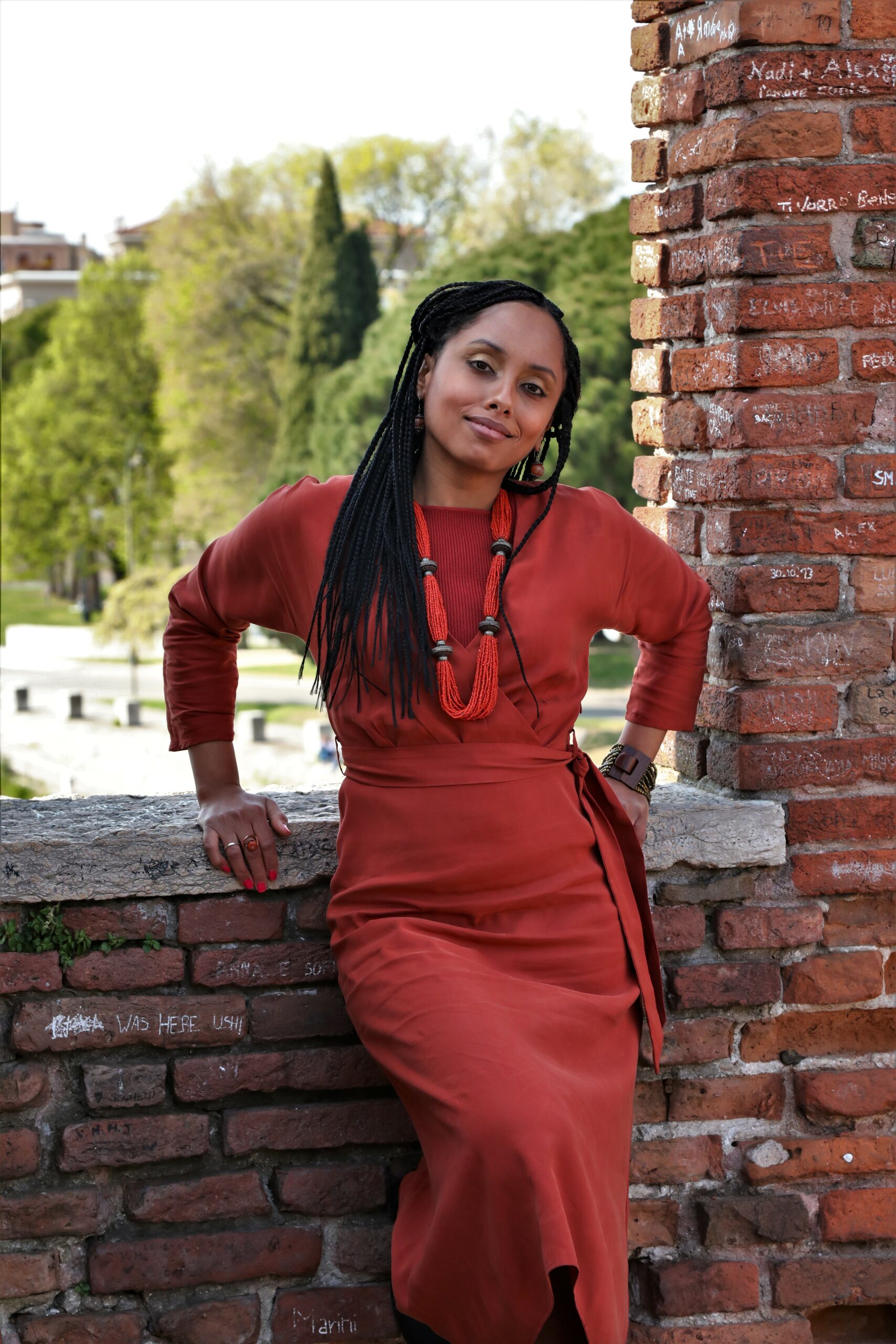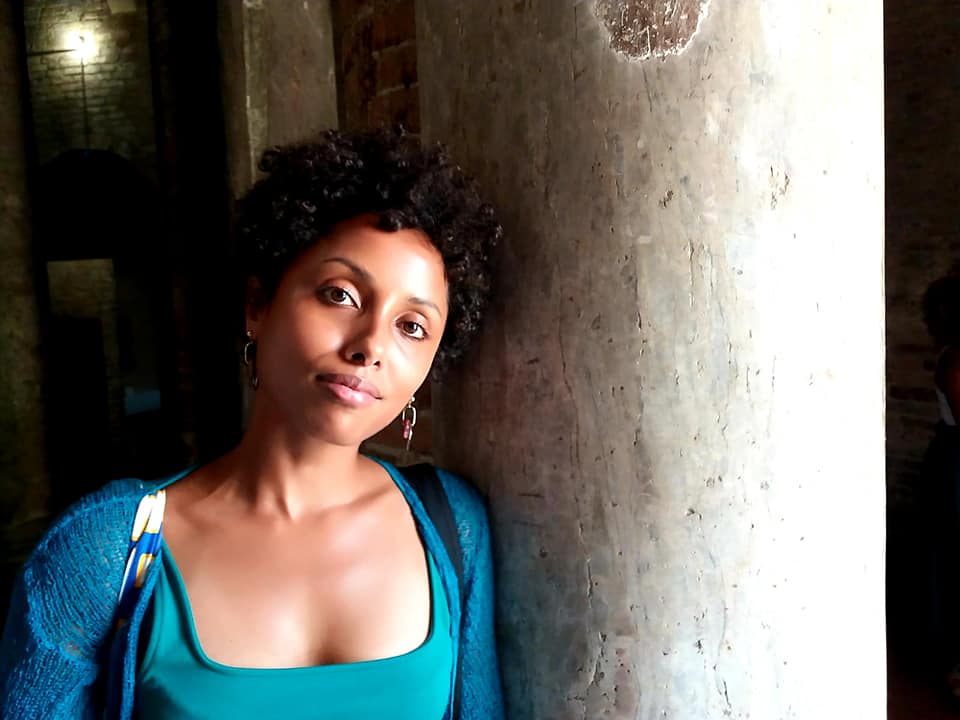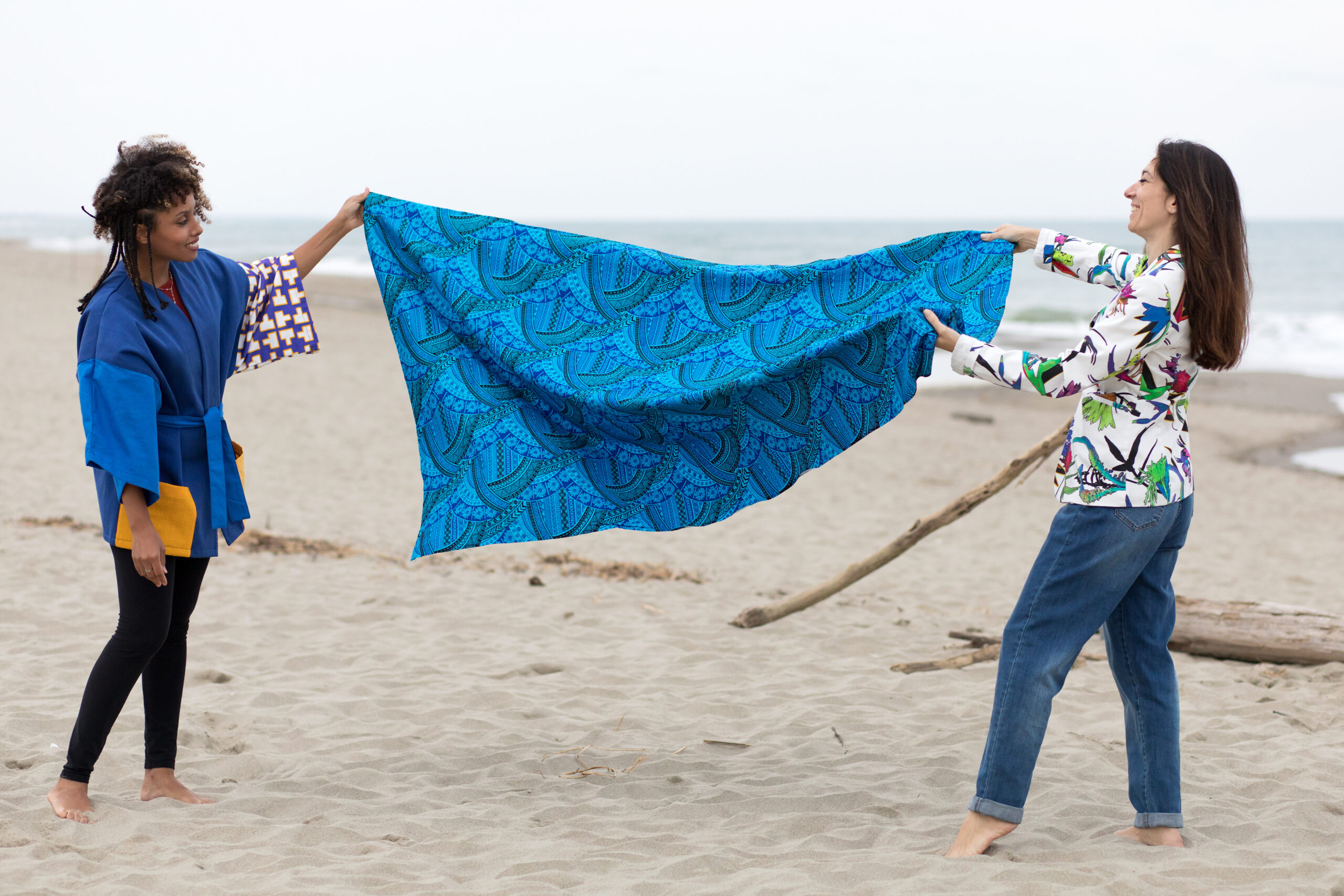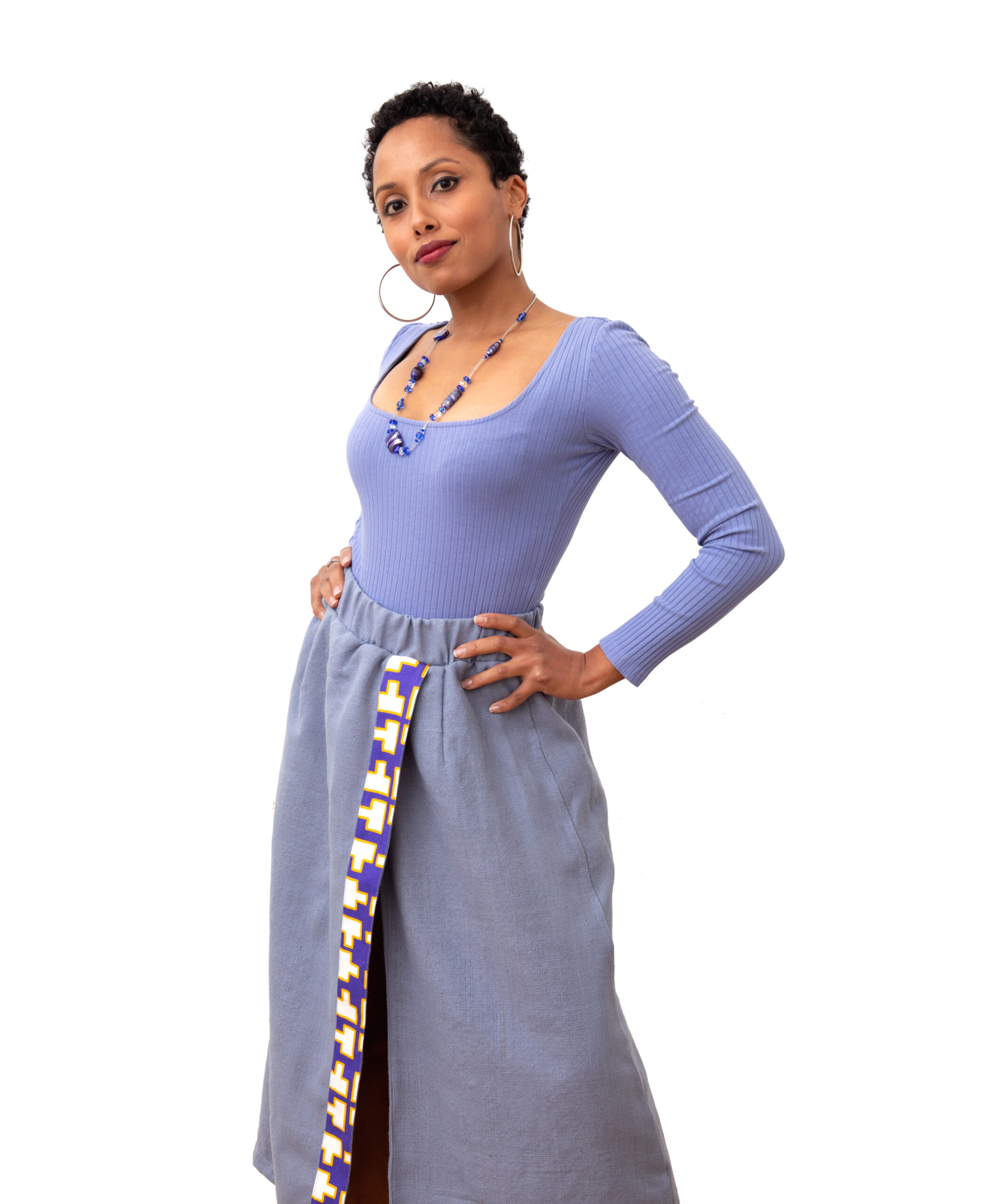Editor’s note: As the years go by, migrating to other countries has become increasingly popular, particularly for Nigerians (and Africans generally). Japa, we call it. For the next 10 weeks, Imo Ekanem, in partnership with BellaNaija Features, will explore what it means to live in Italy as an African professional.
Work & Life in Italy is a weekly series where we talk about how Africans live, work, deal with discrimination, and so on. Did you miss our episode with Daphne Di Cinto? Read it here.
This week, we’re having a conversation with Semhal Tsegaye Abebe, the founder of Almaz Textile Design, a fashion brand that promotes diversity and African heritage and is focused on bespoke products made in natural or recycled fabrics. She is a part-time teacher in a penitentiary facility for an e-learning project funded by the Tuscany region. Coming from a background in marketing and urban planning, she started her entrepreneurial journey with trekNotes, a brand focused on pocket-size foldable map guides for experiencing African natural parks and historical sites from the African perspective. Born in Ethiopia and raised both in Ethiopia and Italy, she identifies as bicultural and looks forward to addressing the untapped potential in the connections among the very diverse pool of people and expertise in Italy.

Photo Credit: Abi Kobe Zar
Hello Semhal, thank you for being here. How are you feeling?
Hello, thank you for having me. I feel well.
Great. Let’s get right in! How has living in Italy been so far as an Ethiopian?
Italy, of course, is an amazing country, renowned worldwide for its wonders, cuisine, fashion, art and architecture. The system also has its virtues, like accessible education and health. However, it also comes with challenges such as bureaucracy, which can be very frustrating. The increasing intolerance towards migrants also means having to deal with friction in many situations. Each country has its pros and cons, one has to find an optimal way to live without renouncing to goals and dreams, but what’s fundamental is knowing one’s rights and pointing them out whenever necessary.
Let’s talk about what brought you to Italy
My coming to Italy during my childhood (from 6 to 11 years old) was a consequence of the final clashes of the Ethiopian civil war. My dad, Dr Tsegaye Abebe Adhana, a geologist (PhD), was already doing his masters here in Italy, and his concern for the possible consequences of the urban guerrilla of 1991 in Addis Ababa led us to join him in Italy. My mother, Dr Yirgalem Tsegaye Kifle, a math professor at the AAU, used the five years we stayed in Italy to do her PhD in Computer Science, and once they both ended their doctorates, we went back to Addis Ababa.
Having spoken mostly Italian throughout these years in order to adapt to the environment, we realised we had forgotten our native language, Amharic, so our parents put us in the Italian school of Addis Ababa to facilitate the prosecution of our education. We eventually learned the language and culture, and when I was 19, I won one of the only two scholarships available that year for the whole school, granted by the Italian Ministry of Foreign Affairs. I left Ethiopia at 19.

Photo by Giuseppe Matrone
Aww, congratulations. Tell us about your professional journey in Italy
During my college years in Italy, I covered different professions, from tutoring high school kids in geometry to washing dishes, going from bingo worker (that’s where my cash handling skills come from) to waitress, cultural and linguistic mediator and then entertainer for an events company.
That’s a lot
It is. I wish some people had done these kinds of jobs before sitting in an office, as they would have learned so much about themselves and others. They would be more respectful and, especially, they would learn skills that don’t come with a degree. For instance, a few days ago, I got the wrong change from a young cashier two times in a row, I can’t say whether it was done on purpose or not.
After I was through with my college education (BSc in Urban Planning and an MA in Marketing Management), I started working in an architecture firm for free, of course, as most new graduates in this and many other fields in Italy, either work for free or flee the country. I wasn’t willing to do free work for more than 6 months so I turned to marketing and easily found a job and worked in different companies in the advertising, publishing and pharmaceutical industries. Finally, by the end of 2020, I founded my own company, Almaz textile design, while still working mainly as a freelance teacher in a correctional facility and, from time to time, as a mediator or graphic designer.
What are the challenges and high moments from your career journey as an African in Italy?
The main challenges, as a migrant woman, are related to lack of access to funds, and the friction I was talking about in the first question. There still is a creeping sexism and racism that obviously makes it difficult for a black woman to see herself as the master of her fate.
Whenever a woman is in a public space, she will encounter someone that is ready to overstep boundaries, make insinuations or downplay her in some low-key or striking way. Therefore, it’s important that she asserts herself and plays her inner positive dialogue louder than the outer. Coming to the business side, one should only collaborate with those interested in doing business, people who respect you, and the job at hand. It’s important not to waste time with whoever makes inappropriate comments or asks inappropriate questions.
Younger Italians (late Millennials and Gen Z), seem to be more adequate to work with than the older generations, because they grew up in a much more diverse society, therefore their generation has a more inclusive outlook on society and the world, a less superficial and xenophobic approach towards migrants.

Photo by Guanni Meucci
I would say that I am deeply satisfied with having encouraged and helped in some cases other younger people of migratory backgrounds to pursue their own dreams. Also, I’m happy with my work as a teacher, as after one year and a half, I can clearly see improvement in some of my students. Seeing them become more independent and confiding in one another is inspiring. I think that black women are one of the most special creatures on earth and, at the same time, the most mistreated by everyone. Seeing a black woman doing something of her own is inspiring – because it is assumed she’s incapable of doing something for herself. It makes my students feel like they can also do it.
Have you experienced any form of discrimination because of your race or accent? How did you deal with it?
Yes! In the past, I have dealt with these issues in the wrong way, and it left me hurt. It also left me inhibited and restricted in expressing myself authentically. As an adult, I currently solve the issue right in the moment it happens, by confronting the racist or sexist, because you have to be the first person to teach others how to treat you.
There is an Amharic proverb that goes, “Shake the fence of the person you underestimate,” and so you have to show that your fence is not for shaking. It may imply becoming unlikable by people, but if the cost of being liked is losing your dignity or peace, then it’s a categorical no.

Photo by Giuseppe Matrone
Love to hear this! What does success mean to you and what would you consider as a special ingredient to your story?
Success implies sacrifice and dedication. I tattooed my logo the month I registered my VAT number because this is it; it’s the reason I love living, being able to express myself and inspire others, and making people happy by providing bespoke products, talking to clients, and meeting people.
What are the little actions Africans in Italy can adopt to help them thrive?
I think Africans in Italy should connect and collaborate, this doesn’t mean sharing business secrets but supporting one another in many possible ways. We need to organise ourselves into associations, peaceful commercial organisations, and support groups. Many are being founded now and I have seen a lot during and after the pandemic. Also, I think it’s important to connect back to the respective motherlands and collaborate or invest with many brilliant people we have in Africa who are building a new promising era.

What are the things Africans looking to relocate should keep in mind?
It’s important to have accurate information as you can’t always trust a single operator in some office, be it in the local embassies or abroad. There usually is too much discretion when making some vital decisions, even when your rights haven’t been respected, so you appear to be the one responsible for your own problems.
As an example, I can recall sending a long letter to a university because a friend, who had never been to Italy or spoken the language, had arrived in Italy during the pandemic for her Master’s in English and was risking repatriation. This would have meant the loss of all her efforts: passport, visa procedure, registration, scholarship, etc., for a tiny mistake she made on her online enrolment procedure. The letter really served to open the eyes of the decision-makers and she was eventually allowed enrollment. So, firstly, when relocating, it’s important to have all the detailed information, and secondly to assert oneself wherever the rules have been followed or, at least, the intentions were good.
***
Many thanks to Semhal Tsegaye Abebe for having this conversation with us and to Imo Ekanem for making this possible. Catch up with the next episode next Sunday.
Do you want to be featured on BellaNaija or share your essays with us? Shoot us an email: features@bellanaija.com
The post Semhal Tsegaye Abebe is Helping Young Migrants Pursue Their Dreams in This Episode of Work & Life in Italy appeared first on BellaNaija - Showcasing Africa to the world. Read today!.
from BellaNaija https://ift.tt/21dCj6V
